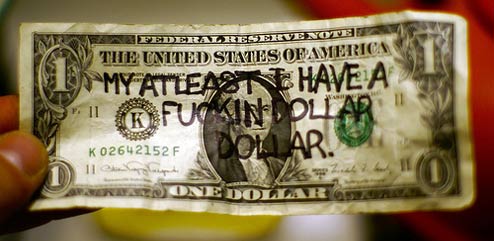Bank fees are increasingly disproportionate to the cost of business they’re supposed to cover, as shown inBankrate’s latest annual survey of consumer banking costs.
- Average NSF (non sufficient fund) fee: $28.95, a 2.5% increase from last year
- Average ATM surcharge is $1.97, up 1%
- The minimum balance required to avoid fees on interest checking accounts at a brick and mortar bank: $3,461.84, up 4%
- The average minimum required to open an online checking account: $650.81, up $517.48
Fees are designed to take advantage of your inattention. To avoid getting tripped up…



















